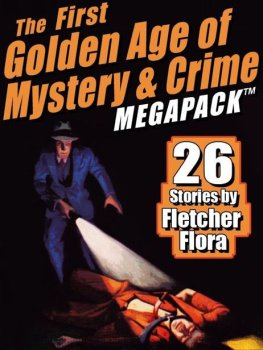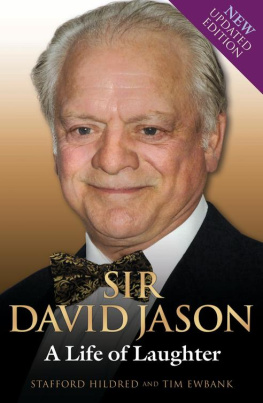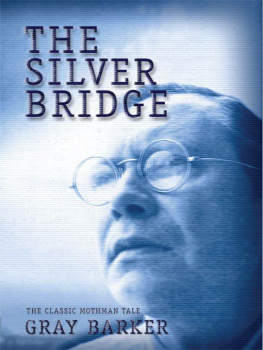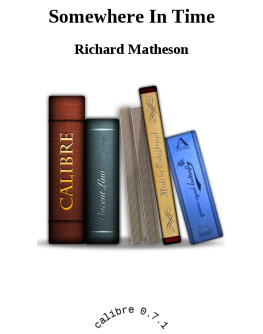Including the pilot, transmitted a year before the first series hit the screen, twenty-one instalments were made, attracting audiences of up to 20 million. Written by those prolific scribes Dick Clement and Ian La Frenais, and brought to life by an estimable bunch of actors, headed by the great Ronnie B as Fletch, a recidivist who spent most of his adult life behind bars, the sitcom quickly attracted plaudits and became a shining example of what good situation comedy is all about.
So, if you want to sample comedy writing at its best, find out how the series was conceived, discover some interesting facts concerning the programme and read about the writers and performers experiences, then put your feet up and keep turning the pages. Packed into this little volume are script extracts boasting some of the best moments from a superb comedy, an overview of the shows history and much, much more. Happy reading!
THE STORY IN A NUTSHELL
Norman Stanley Fletcher, you have pleaded guilty to the charges brought by this court and it is now my duty to pass sentence. Youre an habitual criminal who accepts arrest as an occupational hazard and, presumably, accepts imprisonment in the same casual manner. We, therefore, feel constrained to commit you to the maximum term allowed for these offences: you will go to prison for five years.
A s the opening credits rolled at the start of twenty episodes of Porridge, these sobering words told us much about Fletch, everyones favourite lag. From borstal to Brixton, hed become something of a fixture in Her Majestys establishments, having clocked up the years behind bars for an array of petty crimes.
His latest port of call was Slade Prison, a remote jail in northwest England, and we witnessed his arrival in the opening episode, New Faces, Old Hands, in September 1974. But it wasnt our first sighting of the forty-something lag serving time for robbery. No, we first met the cunning Cockney a year earlier, in April 1973, en route from Brixton to Slade in a sitcom pilot, entitled Prisoner and Escort.
The half-hour comedy was the second of seven pilots transmitted in a series titled, Seven of One; the BBC wanted a new comedy vehicle for Barker, just part of a package theyd used to secure the services of him and Ronnie Corbett from rivals London Weekend Television.
Clement and La Frenais, whod already scored a small-screen hit with The Likely Lads, supplied two scripts: Ill Fly You For A Quid, concerning a family of gamblers, and Prisoner and Escort, which also introduced us to Mr Mackay and Mr Barrowclough, the prison officers tasked with escorting Fletch to his new home. Some people doubted a prison-based sitcom would have the legs to survive in the competitive TV world, but Barker wasnt one: after all, while planning an earlier set of pilots, titled Six Dates with Barker, hed mulled over the idea of a prison series himself, so was delighted when the writers submitted their idea.
Initially, Clement and La Frenais envisaged setting their script in an open prison, while Barker felt a Bilko-style approach, oozing frivolity, was just the ticket. After much cogitating, they opted for a closed prison, affording the writers the chance not only to extract humour from the situation but to explore the darker side of doing porridge, too. There is no better example of this than the poignant episode, A Night In, the third instalment based entirely inside the cell occupied by Fletcher and Godber, the nave first-time offender played beautifully by Richard Beckinsale. With Godber struggling to adjust to prison life, Fletch reveals altruistic tendencies to help his cellmate through his difficult time; in doing so, he develops into a father-figure for the youngster.
From the Seven of One series, Ronnie Barker enjoyed two major successes: as well as Prisoner and Escort, the Roy Clarke-scripted Open All Hours also originated from the pilot season. But while Clarkes offering relied more heavily on gags and comedy from the situation, Clement and La Frenais mined much of their humour from the characterisations, providing a depth which appealed to many.
Three of the four main players had already been recruited when the pilots success saw a full-blown series green-lighted: as well as Barker, Brian Wilde and Fulton Mackay, who played prison wardens Mr Barrowclough and Mr Mackay respectively, also made their debuts in Prisoner and Escort.
Jimmy Gilbert, executive producer on Seven of One, had known Mackay since studying together at drama school and working as actors at Glasgows Citizens Theatre in the 1950s. Hiring Wilde, meanwhile, to play the easily led and nervous Henry Barrowclough was Ronnie Barkers idea. In the pilot, its Wilde and not Mackay who has the most air time with Barker, particularly when they hole themselves up for the night in a deserted cottage after the minibus transporting Fletcher to Slade Prison breaks down on the bleak moors. But as the series progressed, Fulton Mackays character came to the fore; on reflection, Dick Clement commented theyd under-used Mackay in the beginning but quickly involved him more. Identifying the tough-talking warder as a richer character meant Barrowcloughs prominence diminished, much to the actors disappointment.
A host of other wardens and prisoners were required to fill the fictitious Slade Prison, but the final piece of major casting involved finding someone to play Fletchers cellmate the
Little victories, little victories.
callow Lennie Godber. Ronnie Barker suggested Paul Henry, whod make his name playing woolly-hatted Benny in Crossroads; having just worked with him, Barker deemed him ideal for the role.
Producer Sydney Lotterby had other ideas, however: he was impressed with Richard Beckinsale, who was playing Geoffrey in Granadas sitcom, The Lovers, and thought his sensitivity as an actor was apposite for Godber. When Barker saw the Nottingham-born actor in action, he shared Lotterbys enthusiasm. As soon as Barker and Beckinsale began working together, it was clear a dream partnership was forming.
For the sitcoms long-term success, it was crucial the principal actors worked well together; with most of the action taking place inside the confines of a prison cell, such a restricted environment would only magnify any deficiencies and incompatibilities between the principals. With Porridge this never happened, and the interplay between Barker and Beckinsale was one of the sitcoms many strengths.
With everything in place, Porridge made its small-screen debut with New Faces, Old Hands transmitting on Thursday 5th September 1974, with just over 16 million tuning in. For a time, however, Clement and La Frenais experienced serious doubts about how they could write a full-blown comedy concerning prison. They visited various prisons, including Brixton, and felt profoundly depressed because they realised there was nothing slightly humorous about the reality of life inside.














